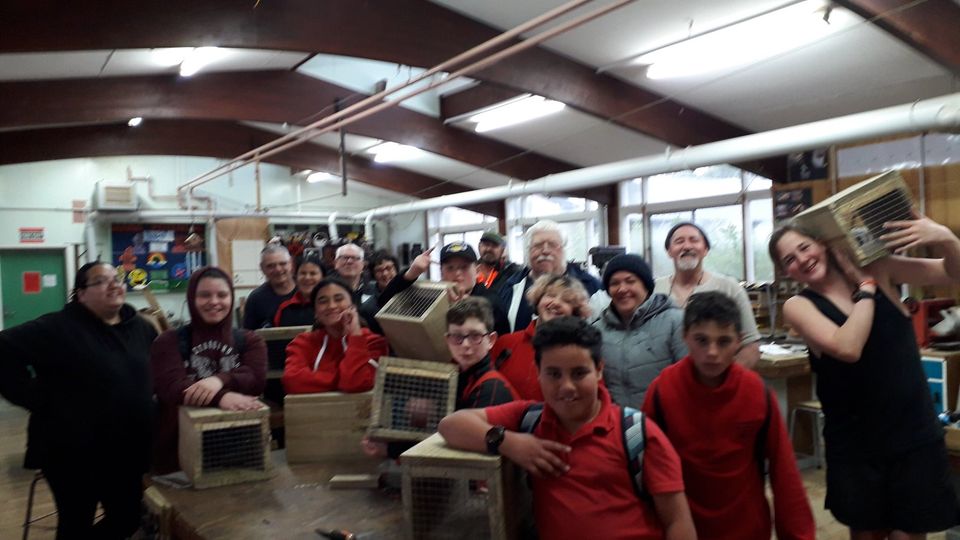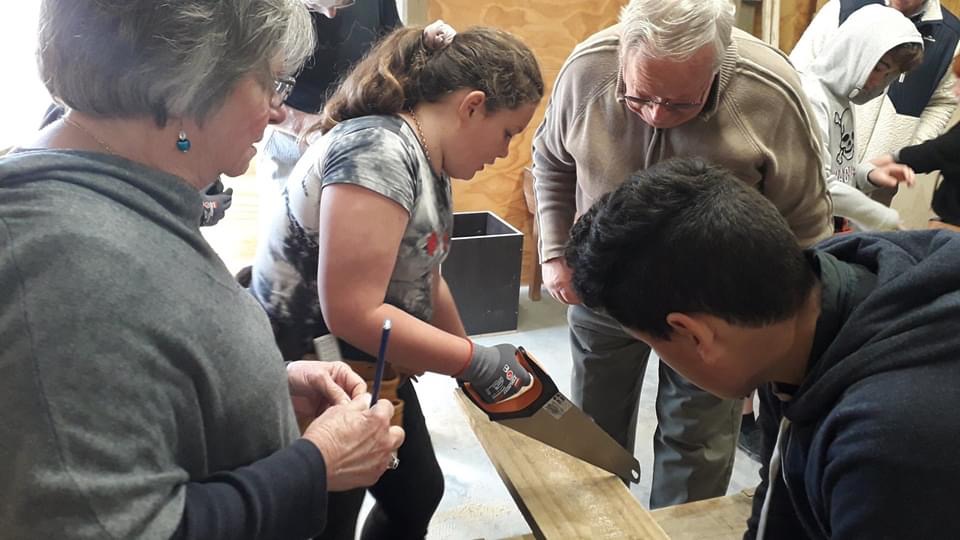

A Story from Gloria O'Dowd, Inglewood Rotary Club - personifies our September month's theme of Supporting Education.
Currently New Horizons Aotearoa Trust is only operating in Taranaki but if any Rotary clubs are interested in talking with Kere about expanding into your Rotary area schools please contact Kere Ell at:
Kere Ell, founder of New Horizons Aotearoa spoke at a pre-covid Rotary dinner meeting in respect to his programme of mentoring in schools, and in particular introducing his mentoring programme into Inglewood Primary School for Term 3 and Term 4 to years 7 & 8. Several members were very interested and from there members are now registered and attending during Term 3.
Kere founded the beginnings of New Horizons Aotearoa in 2013. It has since become the New Horizons Aotearoa Trust and is widely supported by Red Cross, TSB Community Trust, Taranaki Mounga, New Plymouth ITM, Puke Pine and many other organisations.
The purpose of the volunteer mentoring role is to be working with years 7 & 8 students, providing mentoring and guidance whilst rangatahi learn new skills.
Using tools of encouragement and praise the aim is to in install confidence in rangatahi. This model is running currently in several other schools in Taranaki and Waitara Rotarians are also involved.
The programme includes hands on work with hand tools whilst constructing pest eradication boxes (traps)
used by DOC. Tools provided include hand saws, hammers, tape measures, adjustable square, builders
pencils, tool belts, gloves, just to name a few. Rangatahi learn what each item is used for, and they are taught
how to use them safely by the mentors. Buddy benches have also been constructed and donated by Red
Cross; picnic tables are constructed and donated to schools from New Horizons Aotearoa.
This is an extract of Kere’s story and the beginnings of New Horizons Aotearoa:
In 2013, I was managing a community house in the most impoverished community in a New Zealand city.
The community consisted of two streets of high-density social housing and, like many similar
small New Zealand communities, was thought poorly of by the bulk of the city’s residents.
I discovered that students of the large school that included my community’s rangatahi (young people of
Māori descent) were building derby carts for a local downhill race in after school programmes; however,
none of my community’s rangatahi even knew about it let alone asked to participate. Due to wider
communities’ attitudes, whānau weren’t included or invited to participate in broader community events.
Other city programmes existed; however, they were tailored for easy to reach citizens.
I was asked if I would begin mentoring a youth programme run by the community house. I agreed
and discovered that the programme centred on taking rangatahi to local skate parks. Cool, but there
was so much more to see! We began weekly excursions taking rangatahi to places they had never been,
collecting kai-moana and cooking a feed on the beach while the whole time encouraging their
participation and leading activities. The changes in these tama (boys) was immense; they quickly began
standing taller, moving with much more confidence and laughing. Rapport came easily with rangatahi
who had been missing out on so much.
I began an idea that consisted of joining rangatahi with great men in an after-school programme on
school grounds building things. I formed a steering group, found a willing school and a large group of
members of a local men’s shed to realise the dream.
I began to seek funding for materials to build a half-pipe skate ramp. However, I also discovered the
possibility to move back to Taranaki and left the project to be realised by the steering group which was
consequently shelved.
I moved back to Taranaki in 2014 and quickly encountered the same situation existing in a
community I spent time in as a young person. I approached the local intermediate explaining my
2013 project and quickly received support to utilise the school’s resources. I was approached by a
highly reputable community organisation, The Bishop’s Action Foundation, who supported me to
develop a 2015 programme. With a lot of hard work and support from many, we delivered our first
programme at Devon Intermediate in 2015.
Since then, we have delivered to 7 schools and, including this year, have reached more than 150
young people.
There are many reasons why hard to reach communities exist. However, it is tamariki/rangatahi who,
through no fault of their own, are left to fend for themselves often without the support of wider
community.